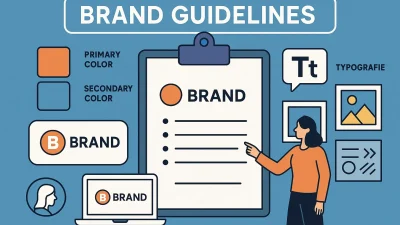In the web of today’s business world, ethical leadership isn’t merely a lofty goal—it’s actually a vital ingredient for long-term success. With stakeholders, customers, and society keeping a sharper eye than ever, grasping and putting into practice solid business ethics has become pretty darn important.
The Foundation of Business Ethics
The Core Principles of Business Ethics for Modern Organizations
So, what’s the deal with business ethics? Well, it’s really the backbone of sustainable success within any organization. It goes way beyond just following the law. It’s about the principles, values, and standards that steer behavior in the business realm. For leaders today, getting a handle on business ethics is key to crafting resilient organizations that can really make it in a marketplace that demands more awareness and responsibility.

Defining Business Ethics in Today’s Context
Business ethics is all about weaving moral principles into decision-making, policies, and even day-to-day operations. It’s not just about what’s good for the company’s profits but also about considering how choices affect employees, customers, society, and the planet. This all-encompassing approach has gained traction as stakeholders expect companies to be more transparent and accountable.
The Business Case for Ethical Practices
Why Ethical Business Practices Are Essential for Success
Impact on Reputation and Brand Value
Companies that practice strong ethics tend to shine brighter than their competitors when it comes to brand value and customer loyalty. Research from the Reputation Institute points out that firms with solid ethical reputations bounce back from crises faster and hold onto customer trust more effectively than those lacking that ethical foundation.
Employee Satisfaction and Retention
Let’s face it—how you treat your employees matters. Ethical practices can really shape workplace culture and boost employee engagement. Businesses known for their strong ethics usually see:
- – Fewer key employees leaving the company
- – Higher employee satisfaction and productivity
- – Greater commitment to the organization
- – Less misbehavior at work
Financial Performance and Sustainability
You know, contrary to what some might think—that ethics can hurt profits—the reality is quite the opposite. Companies that build their operations on strong ethical principles often show:
- – Better ability to manage risks
- – Increased trust from investors
- – More sustainable growth in the long run
- – Improved efficiency in operations
Implementing Ethical Decision-Making
Creating an Ethical Framework
So, how do you build a solid ethical framework? Here’s a quick rundown:
1. Set clear values and principles
2. Draft comprehensive codes of conduct
3. Create effective ways for reporting issues
4. Provide ongoing ethics training and education
Navigating Common Ethical Dilemmas
Today’s business leaders often find themselves in tough ethical spots. You know, situations like:
– Figuring out how to balance profits with fair labor practices
– Dealing with data privacy issues
– Tackling environmental impacts
– Managing conflicts of interest
Navigating these waters requires systematic approaches to decision-making that reflect the organization’s values while also considering what stakeholders care about.
Building an Ethical Organization
Leadership’s Role
Leaders have a huge part to play in building and upholding ethical practices. This includes:
– Consistently showing ethical behavior
– Keeping communication open and transparent
– Creating a workplace where employees can voice concerns without fear
– Recognizing and celebrating ethical actions
Systems and Processes
To truly embed ethics into the fabric of the organization, you need effective systems and processes, such as:
– Regular ethics audits and assessments
– Clear reporting channels
– Comprehensive training initiatives
– Frequent policy reviews and updates
Measuring Ethical Performance
Key Performance Indicators
It’s also super important to track how well you’re doing on the ethics front. Organizations should look at:
– Employee satisfaction scores
– Trust ratings from customers
– Feedback from stakeholders
– Incident reporting data
– Measures of environmental impact
Continuous Improvement
Regularly checking in on and fine-tuning ethical practices ensures they stay relevant and effective:
– Annual reviews of ethics programs
– Surveys to gather stakeholder insights
– External audits for an unbiased perspective
– Comparing benchmarks with others in the industry
The Future of Business Ethics
As technology evolves and the business landscape shifts, fresh ethical challenges will pop up. Companies need to stay ahead of the game by:
– Anticipating what ethical challenges might come next
– Adjusting frameworks to tackle new issues
– Keeping ethical guidelines flexible
– Engaging with stakeholders on emerging concerns
Conclusion
At the end of the day, business ethics isn’t just about making the right choices—it’s about building resilient organizations that can thrive in a marketplace that’s becoming more and more conscious. By embracing strong ethical practices, leaders can create real value for everyone involved while keeping that competitive edge.
So, are you ready to tighten up your organization’s ethical framework? Start by looking at your current practices and spotting where you can improve. Just remember—building an ethical organization is a journey, not a finish line.
Want more tips to grow your brand and boost engagement? Follow Geeksgrow for expert strategies and creative solutions!



